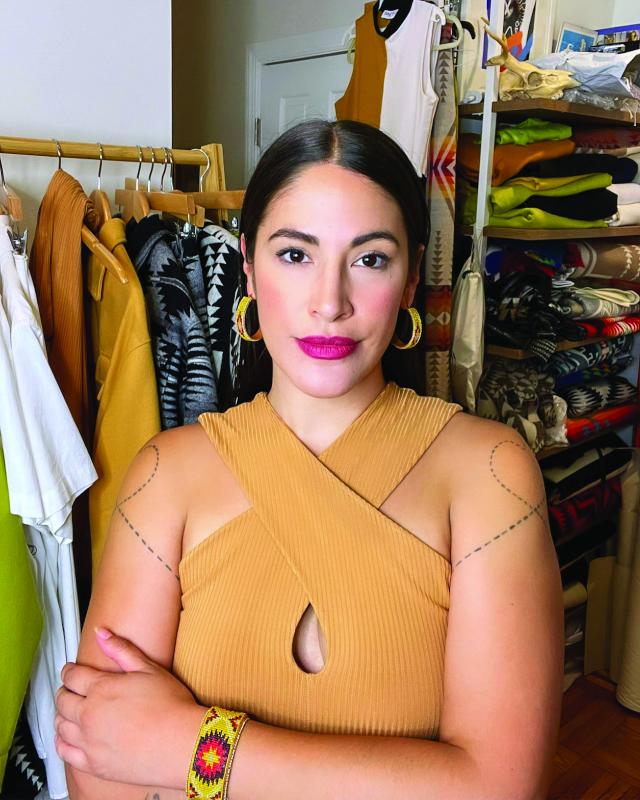Notable Quotable: Korina Emmerich (Puyallup) on being a Native Designer

Korina Emmerich. Photo by Korina Emmerich, courtesy of EMME Studio
When I was in school, I didn’t want to be the “Native” designer. I was always thinking, “I want to be a designer who happens to be Native.” It’s almost like you get cornered into this category where that designation almost feels performative. While [my Native heritage] is really important to me and the work that I do, it’s not always something that I choose to talk about. I didn’t want to be pigeonholed as a Native designer, because the representation in fashion was only in a negative way from our point of view, as far as cultural appropriation goes. You see all these models in headdresses and everything that was just so silly. I think our representation was almost through this mythical lens. Because we’re so often put into a historical context, people think we don’t exist anymore, that we’re not on the other end of an email. We exist here and now, and I think now we’re changing that whole narrative.
Social media has leveled this playing field, where [as Native designers] we are able to have control of our own voices and how we’re seen. It’s not through somebody else telling our story. It’s a big deal as far as representation that our story and our narrative is coming from us here and now in 2022. It’s not through some text that is inaccurate or goods that are stolen that were put into a museum. Obviously, we have such great respect for that older work, but we are also continuing to do work now, and that has a story to tell too. The next hurdle is to break that idea that we’re a monolith, because Indigenous people are so diverse. We all have different stories, we all have different food, we all have different traditions, we all have different regalia, all of our ceremonies are very different. One conversation that’s so interesting is, “What are we called? American Indian? Native American?” The terms always change because people try to put us into a singular category. I prefer Puyallup. That’s my tribe. That’s what I am.
While well-known Native designers are still a rarity in high fashion, Oregon-born Korina Emmerich (Puyallup) has been preparing for this moment in the spotlight her whole life. “I’ve been obsessed with fashion since a really, really young age. I would just cover my walls in all magazine tear sheets,” she remembered. Now running her fashion line EMME singlehandedly from her Brooklyn apartment, Emmerich is part of the slow fashion movement, with a focus on sustainability and climate awareness as well as aesthetics. heritage has informed her approach to the fashion industry, the blurry line between representation and tokenism, and her deep belief: “Everything you put out is an extension of you and your energy and your story.” Read the full story in the American Artscape issue, Contemporary Culture: Equity and Access in the Arts for Native American Communities.





